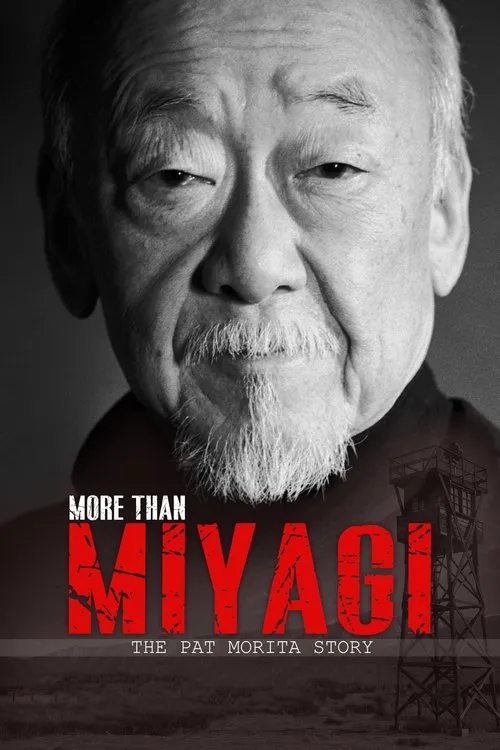More Than Miyagi: The Pat Morita Story

Plot
Pat Morita's life was one of stark contrasts, a reflection of the complex and often tumultuous individual he was. Born on June 28, 1932, in Isleton, California, to a Japanese American family, Morita's early life was marked by hardship, isolation, and a crippling illness. As a seven-year-old, he contracted polio and spent nearly two years bedridden, his life confined within the narrow walls of his family home. This prolonged period of inactivity, coupled with the societal pressures and expectations of his family, led to feelings of worthlessness and self-doubt that would haunt him for the remainder of his life. The years following his illness saw Morita embark on a journey to redefine himself and break free from the shackles of his confined world. He began taking classes in theater and comedy, and it was amidst this newfound passion for the performing arts that he started to shed the vulnerabilities and insecurities that had accumulated over the years. For a boy who had spent years bound by his bed, the prospect of stepping onto a stage and captivating audiences with his wit and charm offered a sense of freedom and empowerment he had never known before. However, it wasn't until he served in the American Army during the Korean War that Morita began to develop his unique comedic style, a unique blend of humor and pathos that would serve him well in the years ahead. His experiences in the military not only helped him discover his talent but also taught him the importance of perseverance, resilience, and adaptability, qualities that would come in handy as he navigated the cutthroat world of show business. Upon his return to the United States, Morita began to make a name for himself in the entertainment industry. He landed small roles in various films and television shows, but it was his breakout performance in the 1970s sitcom "Happy Times" that cemented his status as a rising star. His portrayal of Sam Pak, a lovable bumbler and friend to the show's lead character, showcased his remarkable comedic range and showcased his unique ability to convey vulnerability and strength with ease. Morita's ascension to fame was nothing short of meteoric. He began to land increasingly prominent roles, and his career as a stand-up comedian took off. However, amidst the accolades and attention, he struggled with demons that had followed him since his childhood. His battle with depression, insecurity, and the crippling effects of his polio past continued to weigh him down, making it increasingly difficult to find solace in his professional success. Morita's entry into the world of Hollywood in the early 1980s proved to be both a blessing and a curse. He landed iconic roles in films such as "Six Pack" and, above all, "The Karate Kid." His performance as the wise and enigmatic Mr. Miyagi, an unassuming martial arts master, cemented his status as a household name. However, behind the scenes, Morita struggled with substance abuse and addiction, relying on a cocktail of substances to mask the pain and discomfort that still lingered from his polio days and the insecurities that had plagued him for so long. The dichotomy between Morita's outward success and inner turmoil is a poignant reminder of the dualities that define so many of our lives. His legacy serves as a testament to the enduring impact of our past experiences on our present-day struggles. Despite the numerous accolades he received throughout his career, including an Oscar nomination, Morita's personal demons continued to hold him hostage. In the end, his life's journey serves as a powerful reminder that even the brightest lights are not immune to darkness, and it's the resilience that gets you through the hardships that truly define our lives. More Than Miyagi: The Pat Morita Story offers a poignant and often painful exploration of the complexities of its subject's life. This is not a film that romanticizes or sanitizes Morita's experiences; instead, it bravely shines a light into the darkest recesses of his life, highlighting both the pain and the triumph. In doing so, the filmmakers humanize Pat Morita, stripping away the mythology surrounding his iconic alter ego to reveal the vulnerable, troubled individual behind the legend. This is a story that will undoubtedly resonate with audiences, a poignant reminder that even among our most public figures, we are all fighting battles that few ever see.
Reviews
Recommendations




